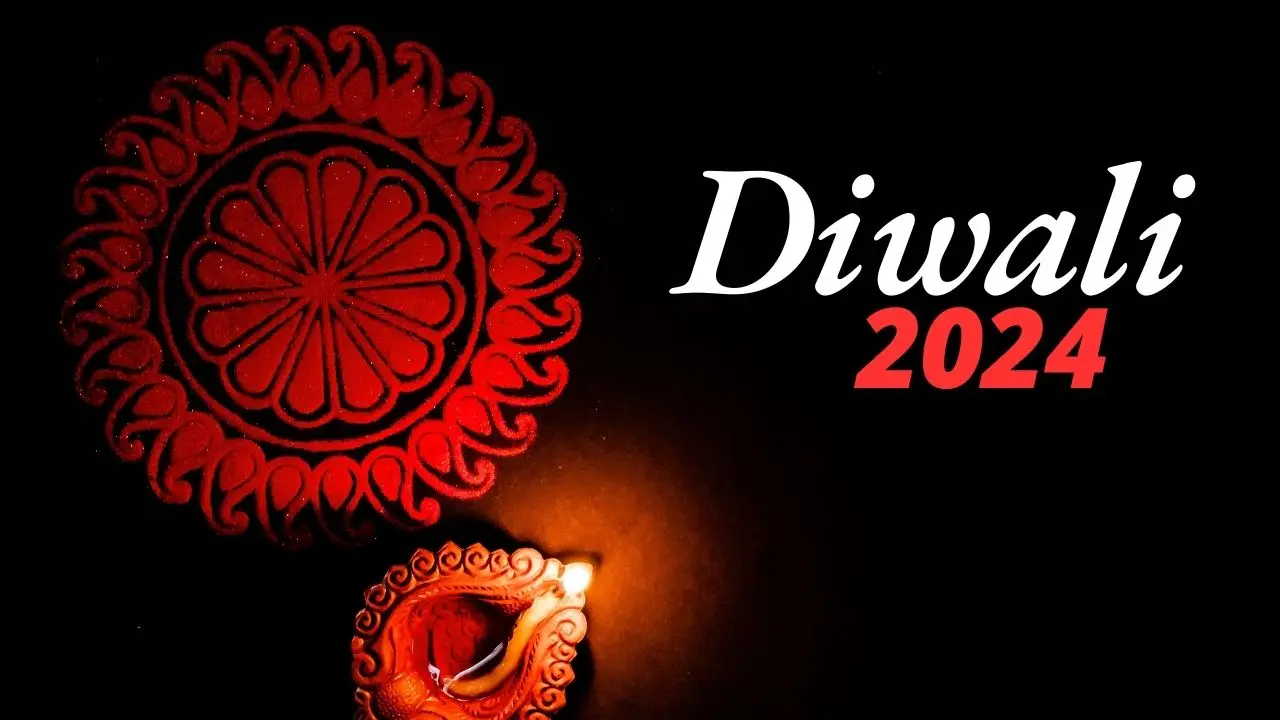In India, Diwali, also known as the Festival of Lights, is one of the most important and widely observed holidays.
It represents the victory of good over evil, light over darkness, and knowledge over ignorance. Families will come together to celebrate this happy occasion as Diwali 2024 is sure to be celebrated with great fervor.
Diwali 2024 Full Calendar
| Date | Festival |
| October 29 | Dhanteras |
| October 31 | Choti Diwali (Narak Chaturdashi) |
| October 31 | Diwali and Lakshmi Puja |
| November 2 | Govardhan Puja |
| November 3 | Bhai Dooj |
When is Diwali 2024?
According to astrologer and palmist Vinod Soni Pauddar, Amavasya is the day on which Diwali is always celebrated. On the evening of Amavasya, people celebrate this festival. Deepotsav is exclusively observed at night. Amavasya Tithi will begin on Thursday, October 31, 2024, at 2:40 p.m.
That is before Chaturdashi Tithi. Deepawali will be observed on the 31st of this year as a result. On the day of Deepawali, Maharatri must observe Amavasya Tithi. This does not recognize Udaya Tithi, and on November 1, 2024, in the evening, Amavasya Tithi is not accessible.
The end is coming in the morning. Shastra Samvat states that in such a case, celebrating Diwali on November 1st will not be considered auspicious. Shastra states that the day of Diwali, October 31, is Shastra Samvat.
Auspicious time for Lakshmi Puja
Goddess Lakshmi and Lord Ganesha are worshipped with rituals on the day of Diwali. The lucky Lakshmi Puja time this year is October 31, 2024, from 5 p.m. to 10.30 p.m.
It is believed that Lakshmi ji was born during the churning of the ocean on the new moon day of Krishna Paksha in the Kartik month. Lakshmi Puja is especially meaningful on this day because of this. Goddess Lakshmi visits homes on this day to bestow wealth, happiness, and prosperity upon her devotees.
Follow the rules of Vastu Shastra
For Diwali, certain Vastu Shastra guidelines must be adhered to. It is believed that if these guidelines are followed, Goddess Lakshmi bestows her blessings on the home and prosperity abounds.
Vastu Shastra holds a special place in Sanatan Dharma, according to Jyotishacharya. Positive energy persists in the house if the Vastu Shastra’s guidelines are adhered to.
Where does Goddess Lakshmi reside
With Diwali quickly approaching, it is especially important to keep the house spotless since Goddess Lakshmi only likes clean environments. Glass that has broken shouldn’t be kept inside the home, according to Vastu.
Before Diwali, immerse any broken idols of deities—regardless of whether they are found in a temple or within a home—in a holy river or pond. A broken idol should not be kept in the house, according to Vastu Shastra. During your Diwali cleaning, dispose of any ripped shoes, clothes, or other items in the house.
5 days of the Festival of Lights
Dhanteras: The celebrations of Diwali 2024 start on Dhanteras. On this day, people worship Lord Kuber and Goddess Lakshmi and offer prayers for wealth and prosperity. New goods, such as gold bars, coins, or jewelry, are bought by devotees.
Naraka Chaturdashi or Choti Diwali: On the second day, people celebrate Choti Diwali, also known as Naraka Chaturdashi. It honors the victory of Lord Krishna over the evil Narakasura.
Diwali: The arrival of Lakshman, Mata Sita, and Lord Rama in Ayodhya is celebrated on Diwali. It also celebrates virtue’s victory over vice. On this day, people decorate their homes with earthen lamps, or diyas, lights, and vibrant rangoli. In the evening, devotees also perform Lakshmi and Ganesh Puja.
Govardhan Puja: Following Diwali, Indians celebrate Govardhan Puja. It is devoted to the worship of the mountain, Govardhan Parvat. It is said that Lord Krishna freed the people of Mathura from Lord Indra by raising the mountain.
Bhai Dooj: Bhai Dooj, Bhau Beej, or Bhaiya Dooj is the celebration of the final day of Diwali festivities. It honors the unique bond between sisters and brothers.
Conclusion
Diwali will reunite families and communities in 2024 to commemorate goodness, light, and knowledge. The five-day celebration provides an opportunity for spiritual contemplation, happiness, and prosperity with its numerous customs, ceremonies, and cultural significance. As usual, Diwali promotes a sense of community and optimism for the future.

